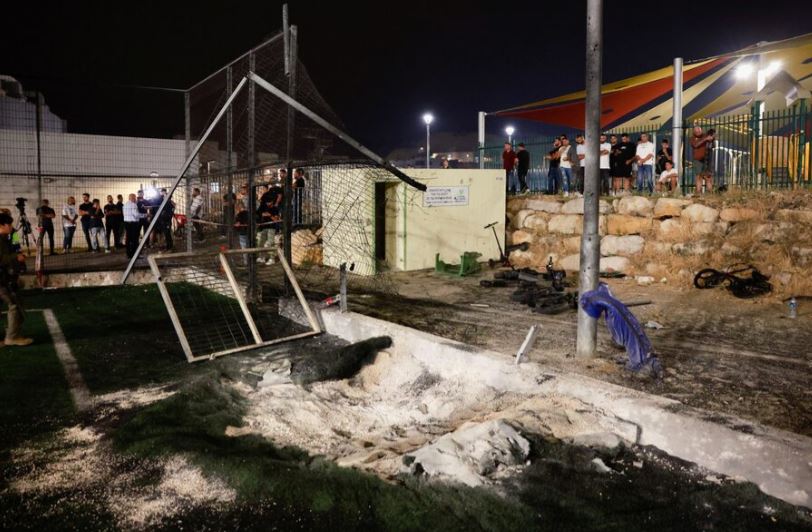The recent rocket attack in the Israeli-occupied Golan Heights, which resulted in the tragic deaths of 12 children and teenagers, has escalated tensions in the Middle East. The United States has attributed the attack to Hezbollah, the Lebanon-based militant group, and has emphasized the need for de-escalation amidst growing fears of a broader regional conflict.
Hezbollah Accused of Rocket Attack
On July 27, 2024, a rocket launched from Lebanon struck a soccer field in Majdal Shams, a Druze village in the Golan Heights, causing significant casualties. Both the U.S. and Israeli governments have pointed the finger at Hezbollah for the assault. The White House has condemned the attack as “horrific” and stated that it was executed from an area under Hezbollah’s control. Despite these accusations, Hezbollah has denied any involvement.
The U.S. Secretary of State, Antony Blinken, has expressed strong support for Israel’s right to self-defense but has also underscored the importance of avoiding further escalation. In a statement made in Tokyo, Blinken emphasized that while the U.S. stands firmly with Israel, it is crucial to prevent the conflict from spreading.
Efforts to Prevent Escalation
Amidst the heightened tensions, the U.S. is actively working on a diplomatic front to address the situation. The White House has been engaging in discussions with both Israeli and Lebanese officials to find a resolution. Vice President Kamala Harris’s national security adviser, Phil Gordon, has assured that Harris is closely monitoring the developments and is committed to supporting Israel’s security.
Secretary Blinken has also highlighted the importance of reaching a ceasefire deal in the ongoing Gaza conflict, which he believes could help de-escalate the situation on Israel’s northern border. The conflict in Gaza, which has been ongoing for over nine months, has resulted in significant loss of life and a severe humanitarian crisis.
Regional and Global Reactions
The attack has drawn widespread condemnation and concern from various international stakeholders. U.S. Senate Majority Leader Chuck Schumer has echoed Blinken’s sentiments, affirming Israel’s right to defend itself while calling for de-escalation to avoid a wider war. Schumer’s remarks reflect a broader consensus among Western leaders who are advocating for diplomatic solutions to the crisis.
Efforts by the United States, Qatar, and Egypt to mediate in the Gaza conflict are ongoing, but a permanent ceasefire has yet to be established. The situation remains precarious, with continued hostilities potentially impacting regional stability and international relations.
Summary
The rocket attack on the Golan Heights has intensified geopolitical tensions, with the U.S. holding Hezbollah responsible and calling for urgent measures to de-escalate the situation. The focus is now on diplomatic efforts to address both the immediate crisis and the broader conflict in Gaza. As international actors engage in mediation, the hope is to avert further violence and find a lasting resolution.
Table of Key Learning Points:
| Key Learning Point | Details |
|---|---|
| Attack Details | Rocket attack in Golan Heights killed 12 children; Hezbollah blamed but denies responsibility. |
| U.S. Response | U.S. condemns attack, supports Israel’s right to self-defense, and urges de-escalation. |
| Diplomatic Efforts | U.S., Qatar, and Egypt involved in mediation; focus on achieving a ceasefire in Gaza. |
| Regional Impact | Increased tensions and fears of broader conflict amid ongoing Gaza war and international mediation efforts. |
Soumya Smruti Sahoo is a seasoned journalist with extensive experience in both international and Indian news writing. With a sharp analytical mind and a dedication to uncovering the truth, Soumya has built a reputation for delivering in-depth, well-researched articles that provide readers with a clear understanding of complex global and domestic issues. Her work reflects a deep commitment to journalistic integrity, making her a trusted source for accurate and insightful news coverage.



